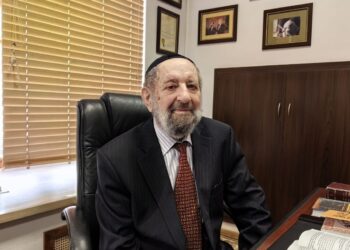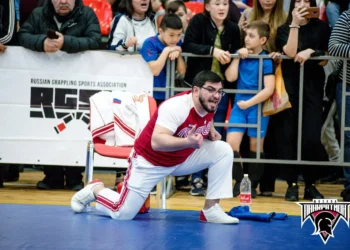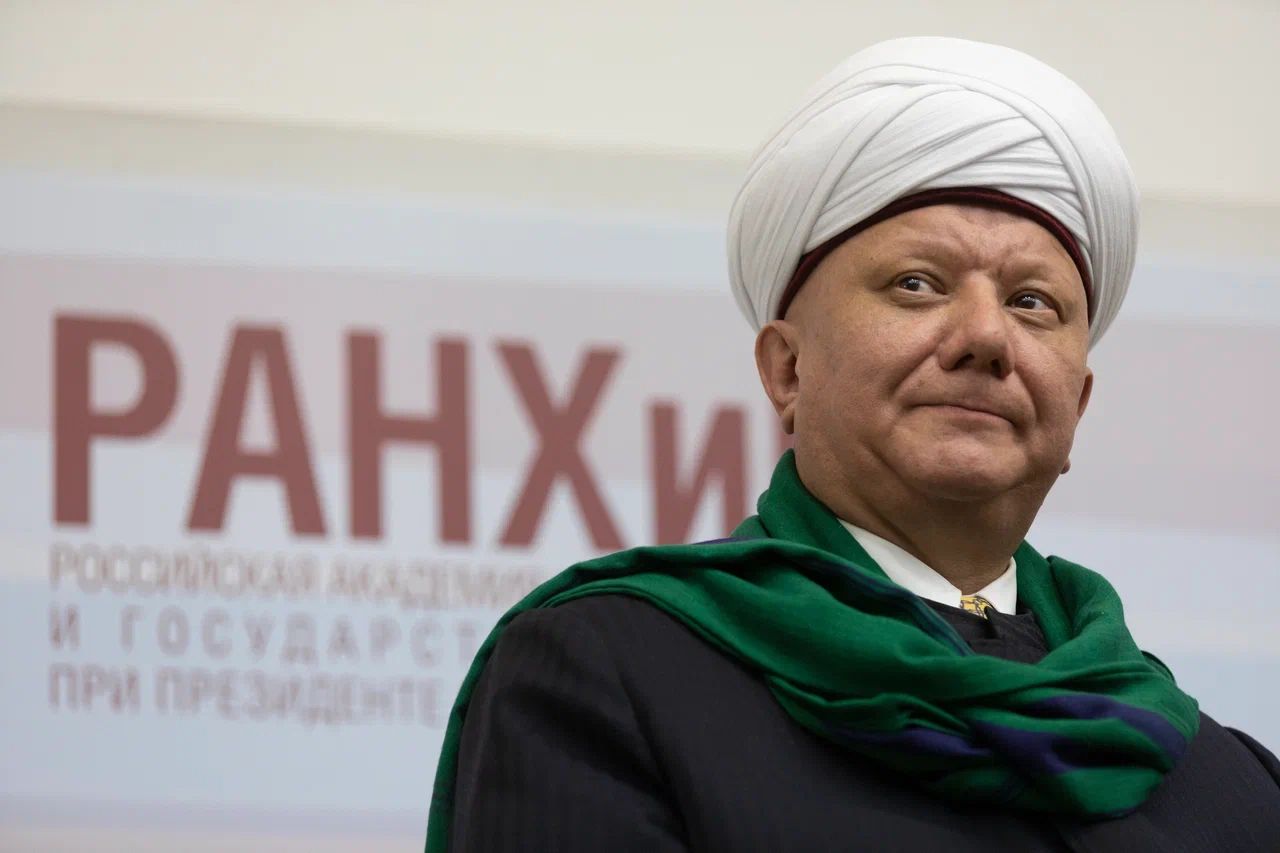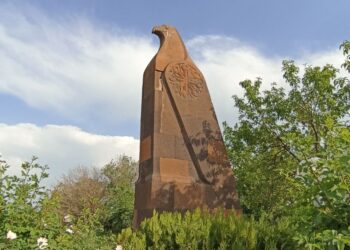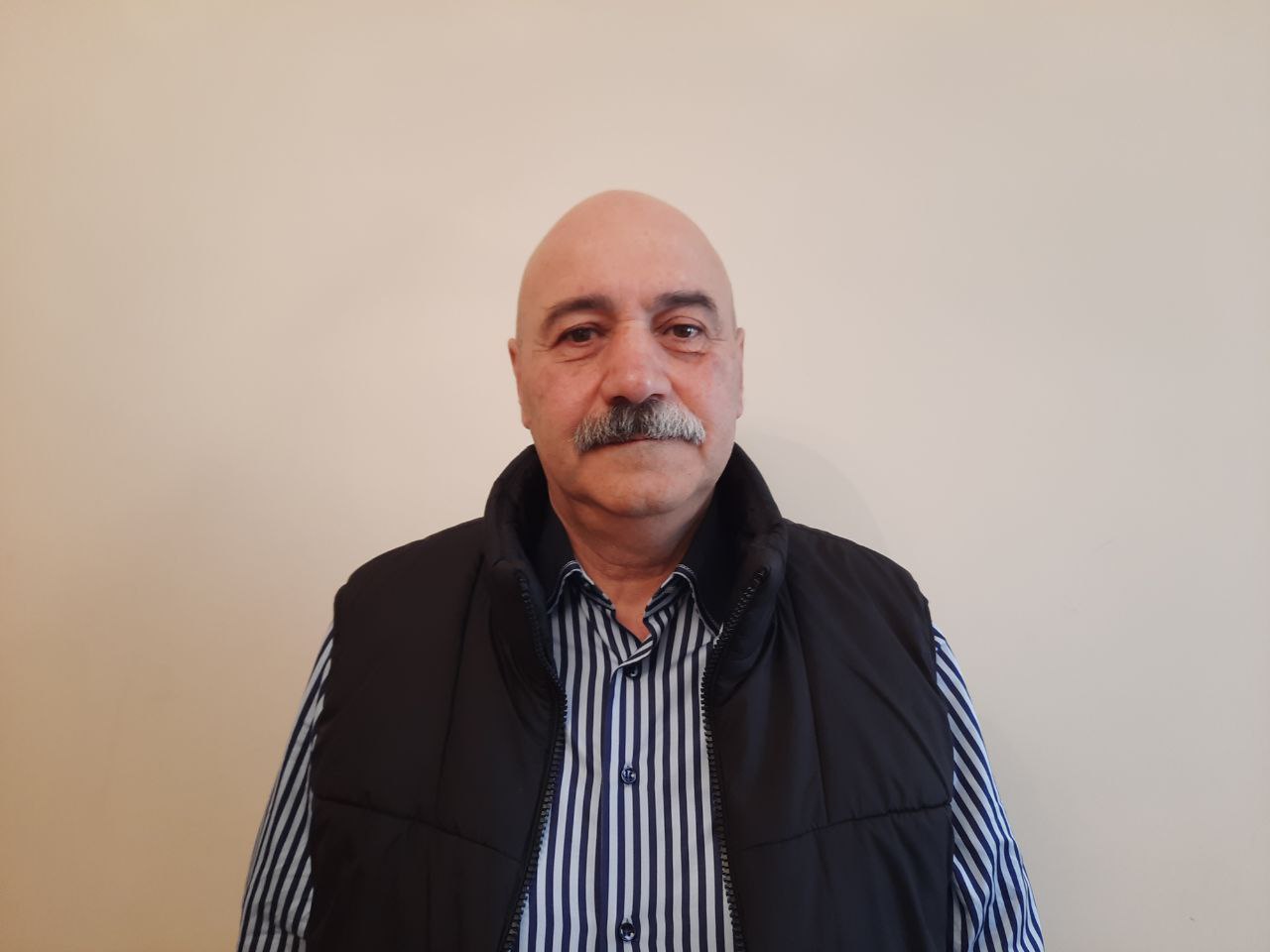GUDERMES (Realist English). Russia’s special military operation on the territory of the former Ukraine has become a serious test for the entire state system in military, economic and political realms. But, first of all, in the military realm. The armed conflict has clearly revealed those shortcomings, problems and inconvenient issues, the solution of which has been postponed for a long time for various reasons.
Against this backgdrop, the Russian University of Special Forces (RUS) located in Gudermes stands out. Back in the spring of 2022, long before the announcement of the partial mobilization in the Russian Federation, it became a place of attraction for concerned citizens and patriots who sought to gain basic knowledge and combat training skills.
The hand of the “Master”. On the role of Daniil Martynov in the creation of RUS
The Russian University of Special Forces is based on the idea of combining in one place the main areas of training for fighters of special units.
“While serving in the units of the FSB Special Purpose Center Daniil Vasilyevich Martynov, I and other employees were faced with the fact that in order to conduct sessions in various areas of combat training, it was necessary to constantly go somewhere. When you go to diving, mountain or parachute training, then you are engaged only in it, and you do not have the opportunity to engage in another type of training.
When you are out on the fire training, respectively, there are no other directions. There was no single educational and material base. Because of this, we had to go to different locations: to skydive in Kirzhach, to shoot in the Moscow region, and to get mountain training in the Caucasus.
It would seem that the sessions are two-week: the day of arrival, the day of the departure, a rest day, some other situation, and only eight of the 12 required working days were worked out. Daniil Vasilyevich came to the conclusion that it would be good to combine all this in one place. He and a team of specialists visited the best centers around the world, where he saw a more universal approach than the one in Russia at that time. But no one had a full cycle in all disciplines,” Alexander Korovin, the deputy head of RUS, recalls in an interview with the Realist News Agency.
After that, Daniil Martynov – the call sign “Master” – with the support of the Head of Chechnya Ramzan Kadyrov, began to implement this project in practice together with a team of like-minded people.
“Daniil Martynov came up with the idea of creating a center to the head of Chechnya Ramzan Kadyrov, outlined it, to which Ramzan Akhmatovich said: “You’re telling me right now what I wanted to do, but I couldn’t quite formulate how.” That’s how the idea of building a training center was born, which would combine the main combat training programs for special purpose units in one place, so that when developing training programs and planning training camps, everything could be worked off in one place,” said the interlocutor of the Realist News Agency.
During the formation of the university, Daniil Martynov faced various difficulties. He had to create something new that no one ever had done.
“Naturally, some mistakes, miscalculations emerged, capacities were somewhere overestimated, and somewhere they were underestimated. We did it for the first time and had the right to make a mistake. The leadership of the Chechen Republic trusted us. All objects of the complex were introduced gradually, as soon as they were ready. At each stage, shortcomings were identified and promptly eliminated so that these moments would not be repeated in the future.
The second problem we faced was related to the fact that RUS was the first such private center in Russia. There are no analogues to it. In this connection, there was completely no regulatory framework for such institutions. We had to do a lot of work with lawyers to legalize each type of activity, since the types of activities are either licensed or certified in one way or another,” said the deputy head of RUS.
Military training in Russia is the hegemony of the power structures. In this regard, Korovin recalls, they were forced to go into the sports component, including with the help of the Practical Shooting Federation, the Parachuting Federation and agencies dealing with those areas that were required for the development of the University:
“With each of these federations separately, we worked on each discipline, under which we created a separate legal entity so that we could carry out our activities on legal basis.”
Cadres are the basis of RUS
The success of the Russian University of Special Forces is largely due to the fact that Daniil Martynov managed to create his own institution of instructors, a system of their selection, training and stimulation for further development.
Alexander Korovin recalls that at the time of the creation of the University there was not the needed quantity of specialists:
“I believe that Daniil Vasilyevich went the right way, having formed a basic instructors ‘ backbone and having raised its instructors. We have conducted testing, we have selected according to certain inclinations and to teaching activities those people who have had a certain experience. On the basis of all this, we began to educate the first group of instructors, from which we later made the instructors’ department. We have actually grown our own teaching base.”
All the instructors of RUS studied at the Russian State Institute of Physical Culture, received additional education “coach-teacher” in various kinds of sports. In particular, they received state diplomas in shooting, parachuting, diving and general physical training.
“Having received basic knowledge and skills in all disciplines of training in an accelerated manner, we distributed people and deepened their specializations so that they would become professionals in their fields,” Korovin notes.
How long does it take to train an instructor? “As far as the time of the instructor’s training goes, this is an individual issue. You can take a basic program — 360 hours of initial instructor’s training, send a person away, issue a diploma and say that he is an instructor. This will be partly true, but to instruct and to teach is a creative work, for this you need to have the appropriate inclinations, you need to have love for this work and for this specialty. If a person has devoted his life to this, he will never learn enough, because there is no limit to perfection, you can always find something in which you will not be a professional and develop in this direction,” he replied.
In his opinion, a person begins to lag behind as soon as he stops developing:
“We have an instructors’ training program. A certain system of professional growth has been developed. We arrange semi-annual qualification sessions on the subjects of their specialization, including physical training and professional skills. Upon reaching a certain level, we assign them new qualifications. When passing exams, they can apply for a higher position. A motivation system has been developed for instructors, which includes not only financial support.”
The institutions of instructors is insufficiently developed in Russia
A special military operation revealed the need to create and develop an institution of instructors in all law enforcement agencies. Especially when training of a large number of volunteers, of those mobilized or of retraining of personnel is required, taking into account the realities of modern combat operations.
Difficulties on the way to the introduction of the institution of instructors are directly related to the charter, which prescribes the duty of the commander to train and educate the personnel. Taking into account the administrative burden of the commanders, they do not always have the time and energy to conduct full-fledged classes.
“In our education system (both civil and military), when a person has graduated from college and is going to serve, they say to him: “Forget everything that you were taught.” Unfortunately, there is no continuity between real university knowledge and what is needed “on earth”. If a person got into a good unit with good commanders, they have trained him and then he trains his personnel. And if there are few specialists in the unit, then there is no one to train himself.
And those people who hold the positions of instructors, and there are such instructors in fire training, and in driving combat vehicles, and in other areas, they have a fairly low level of qualification. These are the positions of warrant officers and sergeants. This is not a prestigious specialty. I believe that this should be further developed,” Korovin stressed.
In the interview with the Realist News Agency, he said that during his service in the FSB Special Purpose Center (Department “B”), there was a whole instructor department, where the best employees with good methodological knowledge and experience were recruited:
“Instructors were a great help to the commander when conducting classes. They did not lose their skills, went on real military operations and participated regularly in the training of units. It was the right decision.”
Martynov’s and his team’s experience was also useful in the formation of the institute of instructors in the Russian Guard:
“In 2017, Daniil Martynov organized a practical seminar for the leadership of the Rosgvardiya on the basis of the Russian University of Special Forces, where he showed the work of instructors and our achievements. Together with the leadership on combat training of the Russian Guard in the Chechen Republic, the first instructor department was formed within the structure of this law enforcement agency. After it showed positive experience, it was scaled further to other regions. Today, instructor departments and officer positions have been introduced in large units of the Russian Guard, where the best employees are selected, sent for training, and new training programs are being developed.
It is clear that any business is not built immediately, but the Russian Guard is on the right track. I think they have already done half the work. I am sure that with the support of the instructor movement in the future, the leadership of the Russian Guard will bring this matter to fruition, which will have a positive impact on the level of training of its employees. In the future, they will reach an even higher level.”
Exam is SMO
Being from the start focused on the training of special forces, the Russian University of Special Forces managed to reconfigure its work in a short time for the tasks of the special military operation. Combat experience was quickly generalized, analyzed and systematized, which allowed us to develop methodological recommendations and retrofit the educational and material base.
“Based on the experience of conducting combat operations in the zone of the special military operation, we came to the conclusion that people need additional skills and abilities. This is primarily due to the peculiarities of this conflict. The war is positional in nature. We have to constantly overcome the enemy’s defense lines. Therefore, the preparation has also changed. On the basis of the RUS, fortifications with ceilings, trenches, dugouts, and strongholds were built. Classes are held on the arrangement of such places. We teach how to equip shelters and how to defend them. In addition, classes are held on the offensive and on occupation of enemy positions. With volunteers, everything is carried out on a real educational and material base with the development of real introductory courses,” Korovin clarifies.
At the initiative of Daniil Martynov, back in 2016, a direction for the use of UAVs was created in RUS. Thanks to this, the units headed by Daniil Vasilyevich had the opportunity from the first days to conduct reconnaissance on their own, to identify targets and to inflict fire damage on them on time.
“We show the volunteers the capabilities of drones so that they understand how the enemy can see them, identify how to hide from drones and act when they are detected. We teach people to look at themselves as if you were a drone operator. This is done in order to teach people not to become an easy target for the enemy — not to huddle, not to unmask the location. We tell and show it all,” the interlocutor of the Realist News Agency added.
Daniil Martynov has paid special attention to tactical medicine classes: “Daniil Vasilyevich always emphasized this area of training. During the special military operation, tactical medicine proved its relevance at 100%.”
Moreover, specialists are also separately engaged in psychological training of fighters:
“We were lucky in this regard. The people we work with are volunteers. According to their inner convictions, they came to us with a sense of rightness to protect the Motherland. Therefore, there is no need to tell them why the special operation is needed. They came by themselves, with their civic position. These people are willing to risk their lives for the sake of their goals and ideals.
On our part, there remains work on proper coordination, identification of their motivation, messages, and formation of groups according to psychological compatibility. Identification of their predisposition to military specialty. When we form teams from volunteers, taking into account the wishes of military specialties, their compatibility as a unit, we get a good symbiosis of well-developed and balanced units.
The work with the fighters also includes conversations, demonstration of videos, both with the negative actions of the enemy and with the positive actions of our units.”
The instructors operate in harsh competitive environment. After all, NATO countries have 100-day training courses for units, through which they drive the Ukrainian military and those mobilized.
According to Korovin, during this period it is realistic to train a specialist in a specific military specialty: “If this is a smeared training, where there is drill, tactics, fire and engineering training, as well as everything else, then this period is not enough. And if you work by specialization, especially since some of the Ukrainian military had basic experience, then it is quite possible to train specialists.”
The formula for the success of the Russian University of Special Forces
Daniil Martynov and his team are not afraid to do new things. He is not afraid to gain experience by trial and error, building the project that turned out to be successful.
The successes of the Akhmat units in the SMO zone, the number of people who come to RUS every day as volunteers, show the result of the joint work of the university and the leadership of Chechnya.
“In our reality, many specialists work following a template, according to those documents that were once written by someone. They are satisfied with such activities. When they hear something new and advanced, they ask the question: “Why is it necessary if everything is already there?”. It must be remembered that all documents were written by humans. The formula for success is not to be afraid to create new things, not to stand still and always go forward. If you stop, eventually you fall behind,” the interlocutor of the Realist News Agency stressed.
According to Korovin, another element of the success of RUS is the efficiency and management of processes. Operational decisions at the University are made by the head of the institution, without a lot of approvals and collecting signatures.
The experience of RUS has been studied in detail at the highest level. In September 2022, Deputy Prime Minister and Presidential Envoy to the Far Eastern Federal District Yuri Trutnev spoke in an interview with Rossiyskaya Gazeta about the work on the creation of military sports training centers on the basis of the Russian Martial Arts Union. Russian President Vladimir Putin has instructed all law enforcement agencies to assist the RMAU. This large-scale project is being implemented jointly with the Ministry of Defense, the Federal Security Service, the Russian Guard and the Ministry of Emergency Situations. Daniil Martynov, who has held the position of adviser to the head of the Ministry of Emergency Situations since the summer of 2022, has also been involved in its implementation together with his team.
The interlocutor of the Realist News Agency explained that today it takes from one and a half to two years to create such a center from scratch. We need to work in two directions at once. The first is the training of specialists, the preparation of training programs, the creation and purchase of material resources. In parallel, work is underway on the design, study of geology and geodesy, approval of the project, as well as construction work.
With the appearance of Daniil Martynov in the Ministry of Emergency Situations, he became one of the leaders of the largest Arctic exercises that took place on the territory of nine subjects of the Arctic zone in the spring of this year. He personally led the expedition, which overcame 1,7 thousand km on the Arctic off-road. And at the end of the expedition, Daniil Martynov visited the North Pole on the new route Khatanga-Bolshevik Island-Barneo Ice Station, passing exclusively through Russian territory. For the first time in the last five years, the flag of Russia was hoisted at the North Pole.
Daniil Martynov is an example of an energetic, motivated person with an active position who stands for development, is not afraid of challenges when creating new ambitious projects. An example of these is the Russian Special Forces University in Gudermes.



